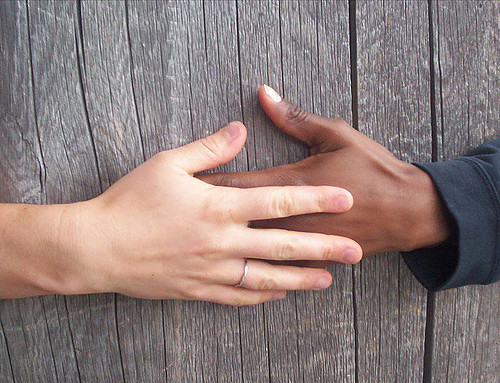What Happened When This Black Woman Gave Advice to a Prejudiced White Man

By:
An anonymous white man from North Carolina called into a political TV show on Sunday and admitted something surprising: he's prejudiced. Even more surprising is that he admitted this to a black woman and the interaction went viral.
The caller dialed in to C-Span's Washington Journal and said that he needed help changing his own racism.
"I was hoping your guest could help me change my mind about some things. I’m a white male, and I am prejudiced. And the reason it is is something I wasn’t taught but it’s kind of something that I learned. When I open up the papers, I get very discouraged at what young black males are doing to each other, and the crime rate. I understand that they live in an environment with a lot of drugs, you have to get money for drugs, and it is a deep issue that goes beyond that. But when, I have these different fears, and I don’t want my fears to come true. You know, so I try to avoid that, and I come off as being prejudiced, but I just have fears. I don’t like to be forced to like people. I like to be led to like people through example. What can I do to change? You know, to be a better American?"
The guest he directed this question to was Heather McGhee, the president of Demos, an organization dedicated to progressive issues and equality, according to The Washington Post.
Her calm and thoughtful response shows the need for honest conversations about race.
“Thank you so much for being honest and for opening up this conversation because it is simply one of the most important ones we have to have in this country,” she said in the video.
She outlined that most people have fears and prejudices and that there are mostly unconscious. She then urged the caller to get to know black families, read the history of black people in the U.S., and turn off the news at night.
 Flickr/Anthony Easton - flic.kr
Flickr/Anthony Easton - flic.kr
In an interview with the Washington Post, McGhee stressed the importance of relationships between races:
It was clear to me he didn’t know a lot of black people, so for him absolutely, first things first, build relationships. It’s also important to note, I said, read the history. The interpersonal is important, but people can have black friends and colleagues and still hold prejudiced ideas and support policies and economic and political systems that harm people of color. For him, it felt like it was a cry for help to know the humanity of black people.
